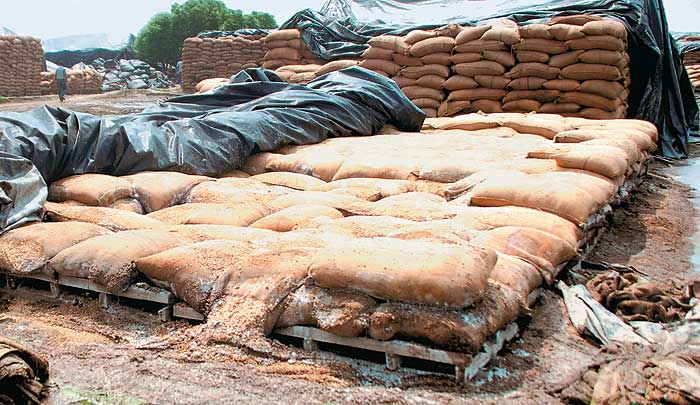
It could not be more ironical than the fact that India is a nation where world’s largest population of hungry people live and yet also the nation where for the lack of proper storage systems, billions worth of food grain gets destroyed due to getting wet in the rainy season. The Indian government drew flak from the nation’s apex court over this issue last year but the directives have fallen on deaf years. Similar situation is being reported this year too.

For all those who are reading this, you and me included, cannot actually fathom the gravity of the situation. It is not that we go hungry for days and months at the end that we value the importance of just a handful of rice or a small bag of wheat. For us it is an issue which affects the poor and hungry. A testimony to the fact is that on a June 12th report in TOI on the issue in Faizabad, where grain worth Rs. 10 crore is lying in the open to rot in rains, there has been not a single comment posted, where we can find hundreds on nondescript issues about a SRK.
It is an appalling situation which affects not just the hungry but the farmers too. It is their crop which is procured from them at a basic support price and allowed to rot. Hence a chain of events is triggered where there eventually is a shortage of food grain and thus is imported from countries like China. A paradox indeed. So the government spends on procuring the food grain and pays for importing more food grain. And there will be no marks for guessing on whom the double burden on economy is transferred to. The tax payers. It is estimated that Rs. 50,000 crore worth food grains is wasted each year.
It is beyond the sensitivity of the ruling class who can see tonnes of wheat lying in the open, the standard practice being keeping it in railway yards covered with tarpaulin, subject to nature’s whims, yet does nothing concrete about it. It is also a disdain towards the honourable Supreme Court which laid directives against this inhuman condition of letting food rot instead of giving it to the millions hungry. Building cold storage facilities or other granaries, the most logical solution to the problem should not take years together. If the government is incapable it should seek help from NGO’s or private players. Not doing anything about it and waiting for next years rain to destroy some more tonnes of wheat is unacceptable.
Is this state of things because of lack of political will? Or of district administration? Or the policy makers? Or the planners? Or the economic advisors? Is it the state governments? Is it the Public Distribution System? The buck simple cannot pass on and stops with the highest level of authority. It must be a priority to not let food grain rot, especially in a country where hundreds of thousands of children are born hungry and they also die hungry.

Be the first to comment